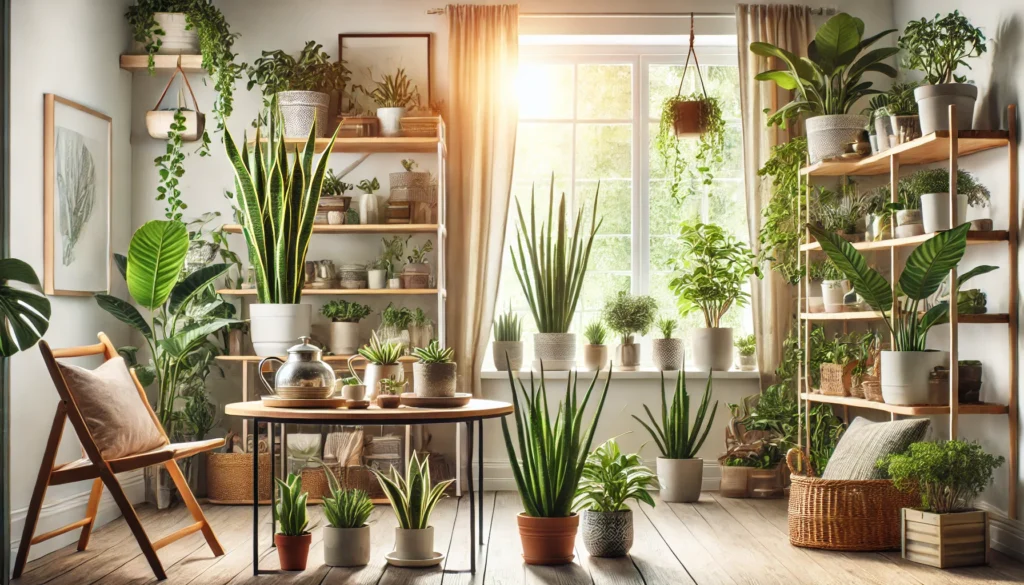In recent years, there has been growing awareness of the positive effects plants can have on our physical and mental health. This concept, known as gardening for wellness, highlights how bringing nature into your home through indoor houseplants can boost your mood, reduce stress, and even improve air quality. If you’re looking to enhance your living space, especially during the colder months when outdoor gardening is less feasible, incorporating houseplants can be an excellent solution.
Below, we’ll explore some of the most popular indoor plants for wellness and provide expert tips for their care.
1. Snake Plant (Sansevieria trifasciata)
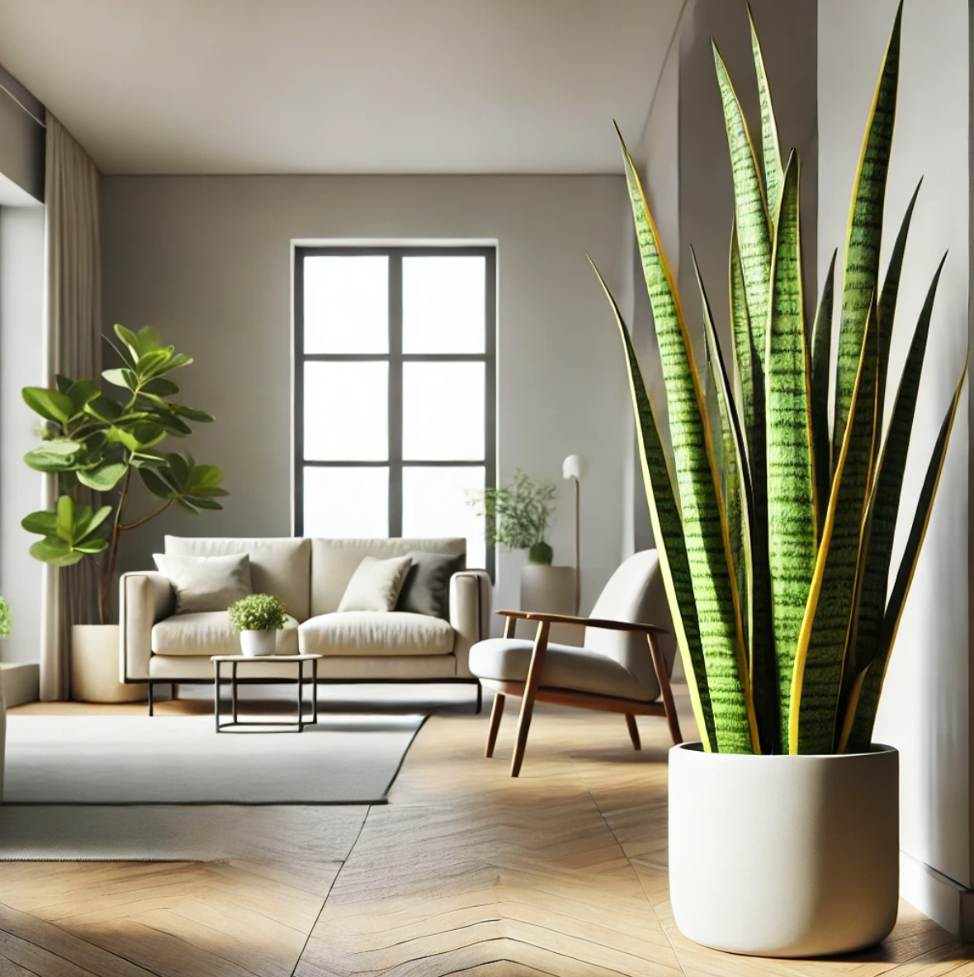
The snake plant is a robust, low-maintenance houseplant, perfect for improving air quality. It’s known to filter toxins like formaldehyde and benzene from the air, making your home healthier.
- Wellness Benefit: Snake plants help purify indoor air, leading to a cleaner and fresher living environment.
- Care Tips: This plant thrives in low light and requires minimal watering. Water only when the soil is dry, and avoid overwatering to prevent root rot.
2. Pothos (Epipremnum aureum)
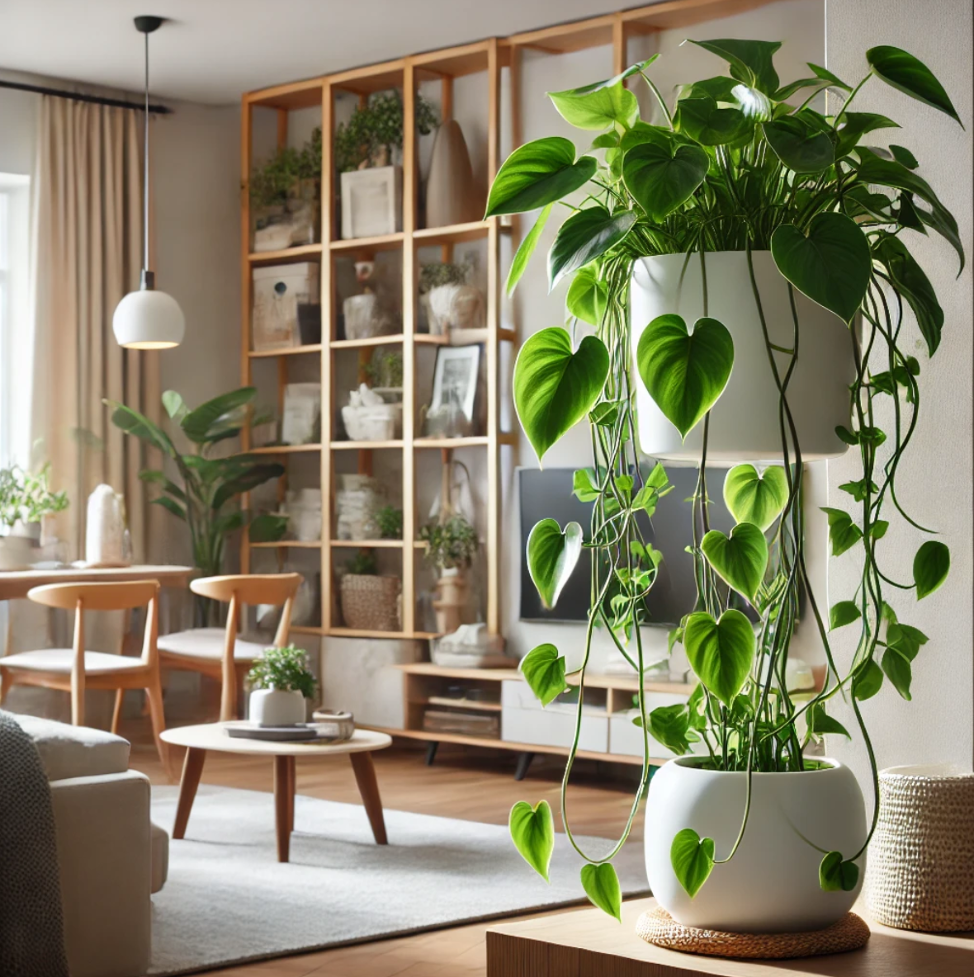
Pothos, also known as devil’s ivy, is a hardy plant with trailing vines, perfect for hanging baskets or high shelves. It’s known for its ability to remove pollutants like carbon monoxide from the air.
- Wellness Benefit: Pothos improves air quality and reduces stress with its calming, vibrant appearance.
- Care Tips: This plant thrives in low to medium light and only needs watering once the soil feels dry to the touch.
3. Spider Plant (Chlorophytum comosum)
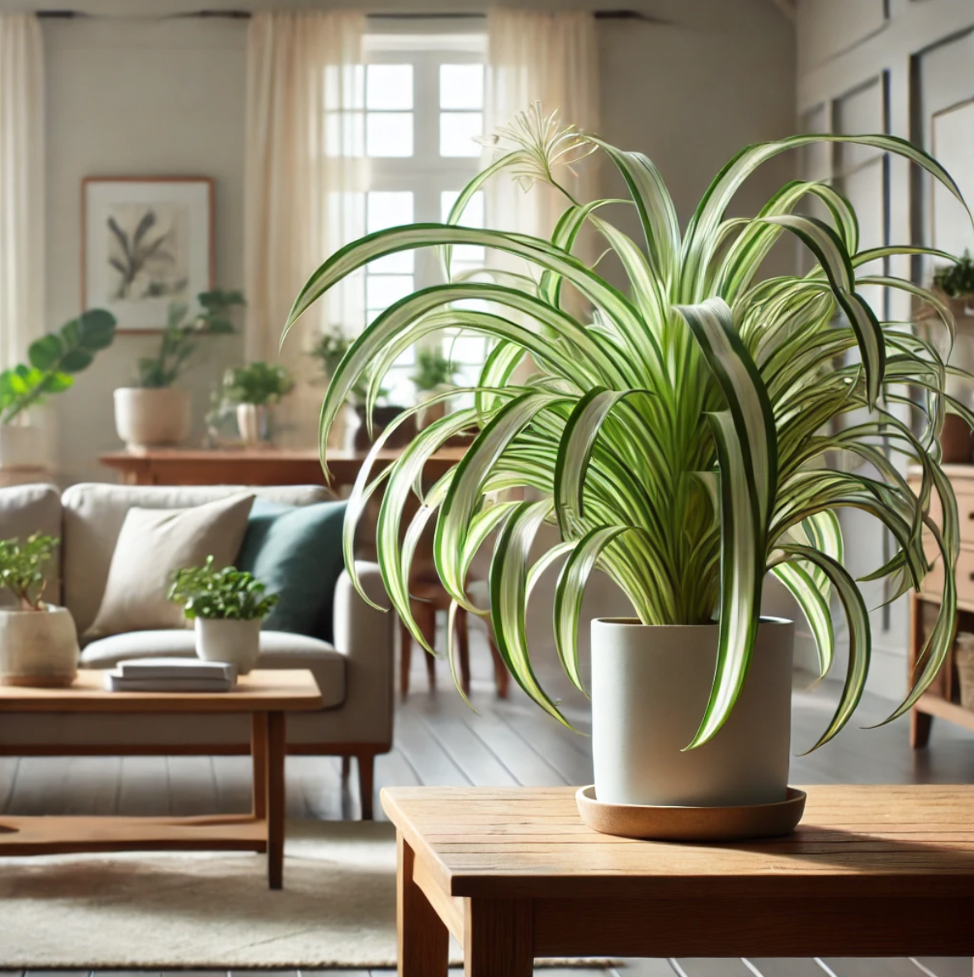
Spider plants are excellent for beginners and well-known for their air-purifying qualities. They are non-toxic to pets, making them ideal for households with animals.
- Wellness Benefit: Like other air-purifying plants, spider plants help reduce indoor pollutants, creating a more breathable space.
- Care Tips: Keep spider plants in indirect sunlight and water them once a week, ensuring the soil dries out between waterings.
4. ZZ Plant (Zamioculcas zamiifolia)
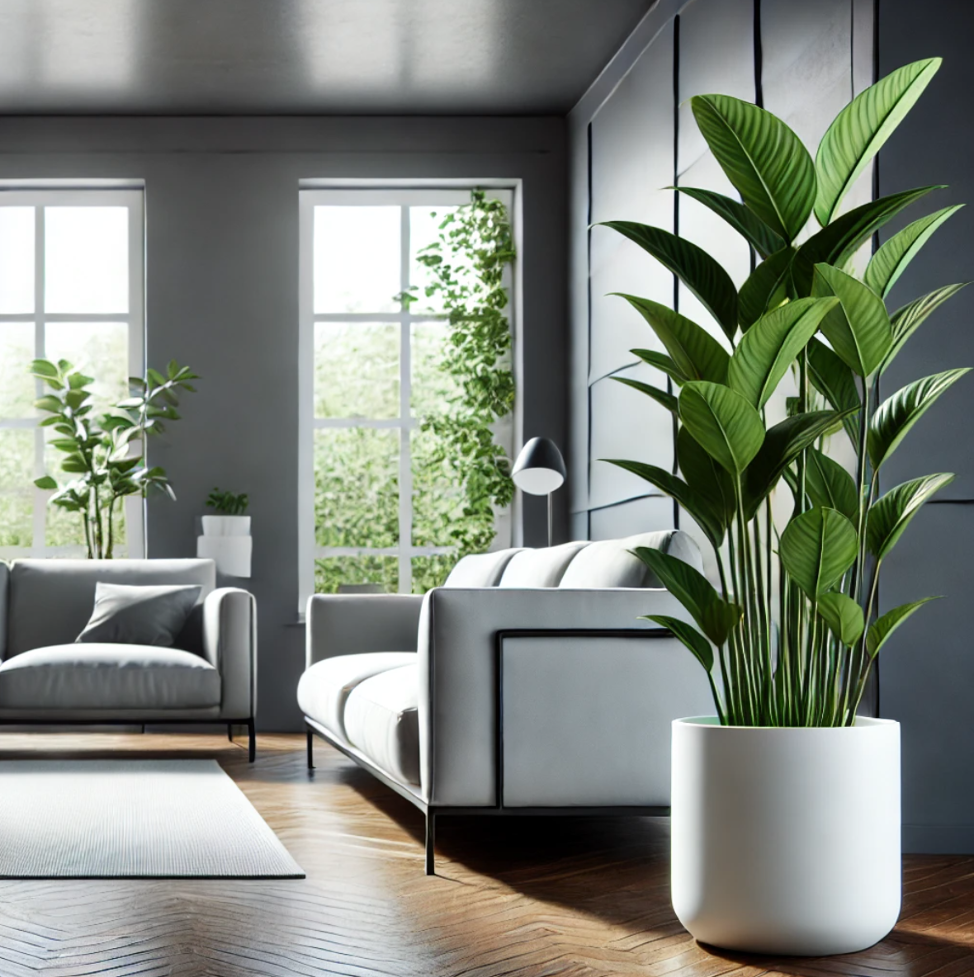
The ZZ plant is a stylish, hardy plant that thrives in low-light environments. It is perfect for busy individuals who may not have time to give their plants constant attention.
- Wellness Benefit: The ZZ plant is known for its resilience and low maintenance, reducing the stress of plant care while still offering the benefits of a green space.
- Care Tips: ZZ plants prefer well-drained soil and only need watering when the soil is completely dry.
5. Peace Lily (Spathiphyllum)
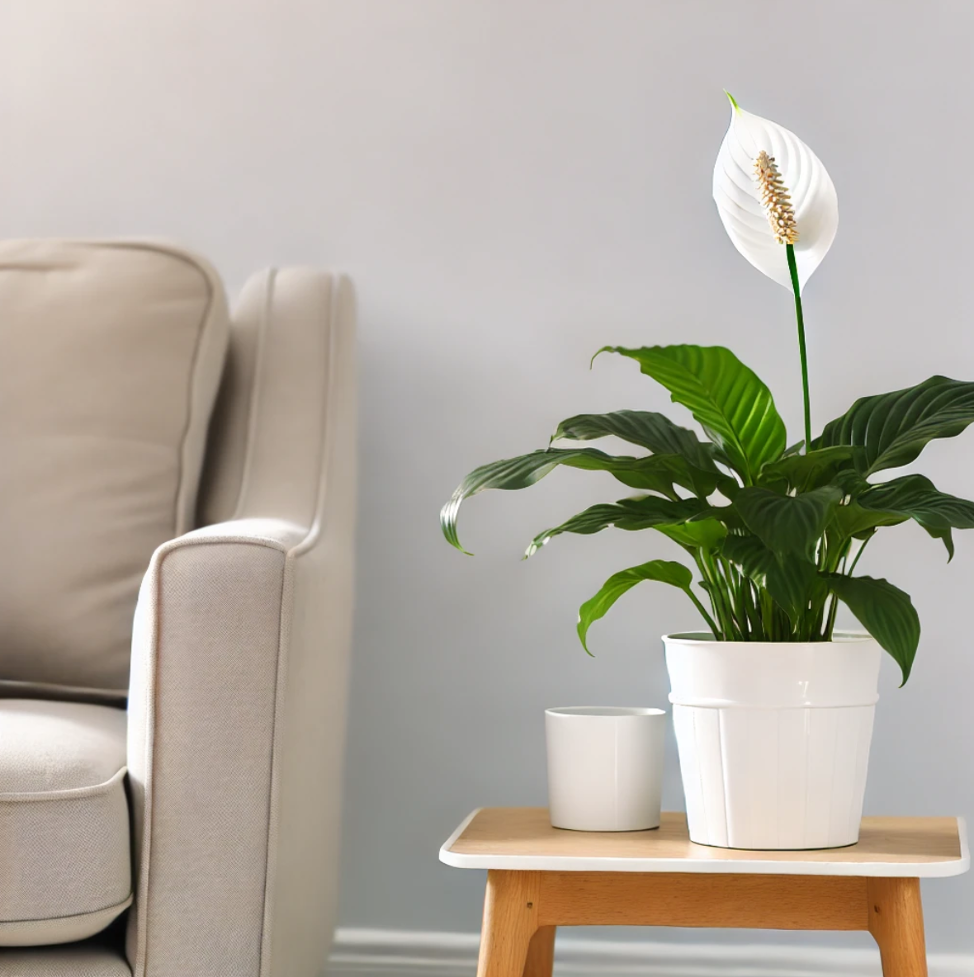
Peace lilies are both beautiful and functional, producing white blooms and removing mold spores from the air. They thrive in low light and humid environments, making them perfect for bathrooms.
- Wellness Benefit: Peace lilies purify the air and contribute to a calming indoor environment, which can help reduce stress.
- Care Tips: Keep the soil consistently moist and place the plant in low to medium light. Regular misting helps maintain humidity levels.
6. Monstera Deliciosa
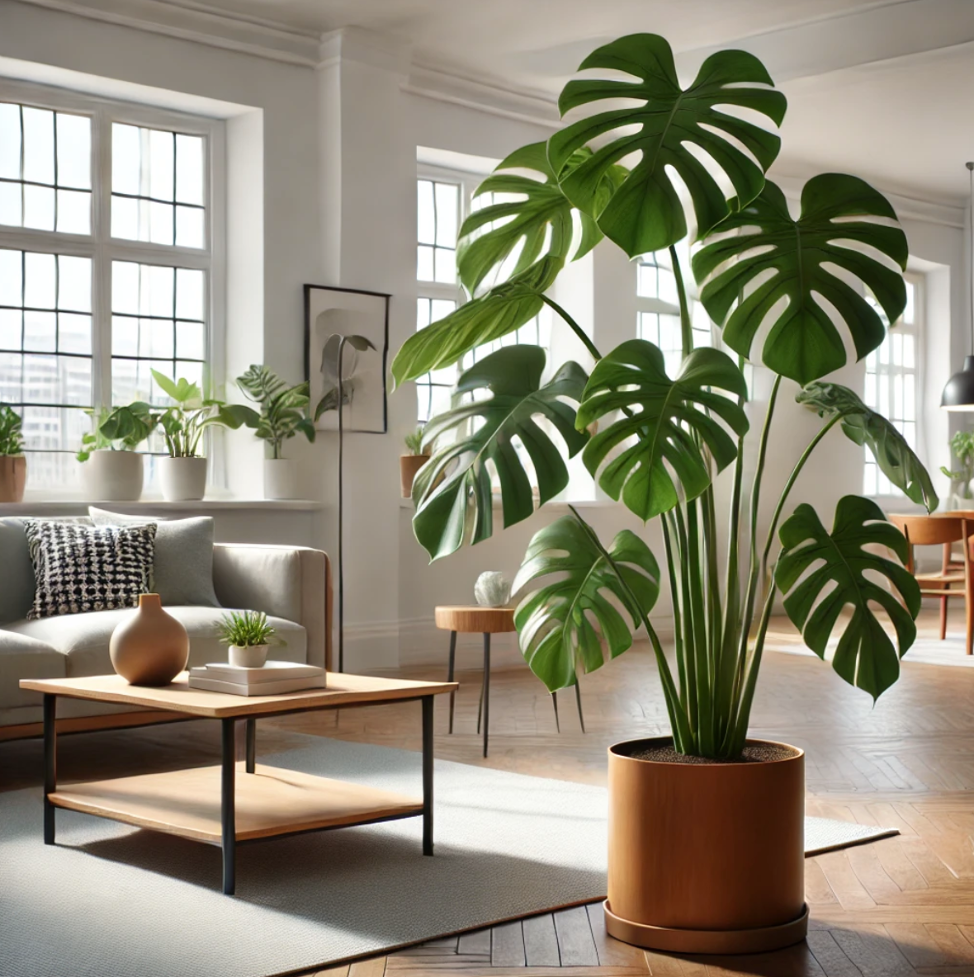
Monstera, commonly known as the Swiss cheese plant, is popular for its large, unique leaves and ability to add a tropical vibe to any space.
- Wellness Benefit: Monstera helps improve indoor air quality and can be an aesthetic addition to any home, creating a connection with nature that supports mental well-being.
- Care Tips: This plant thrives in bright, indirect light and requires regular watering when the top inch of soil is dry. Humidity is also beneficial for its growth.
7. Aloe Vera
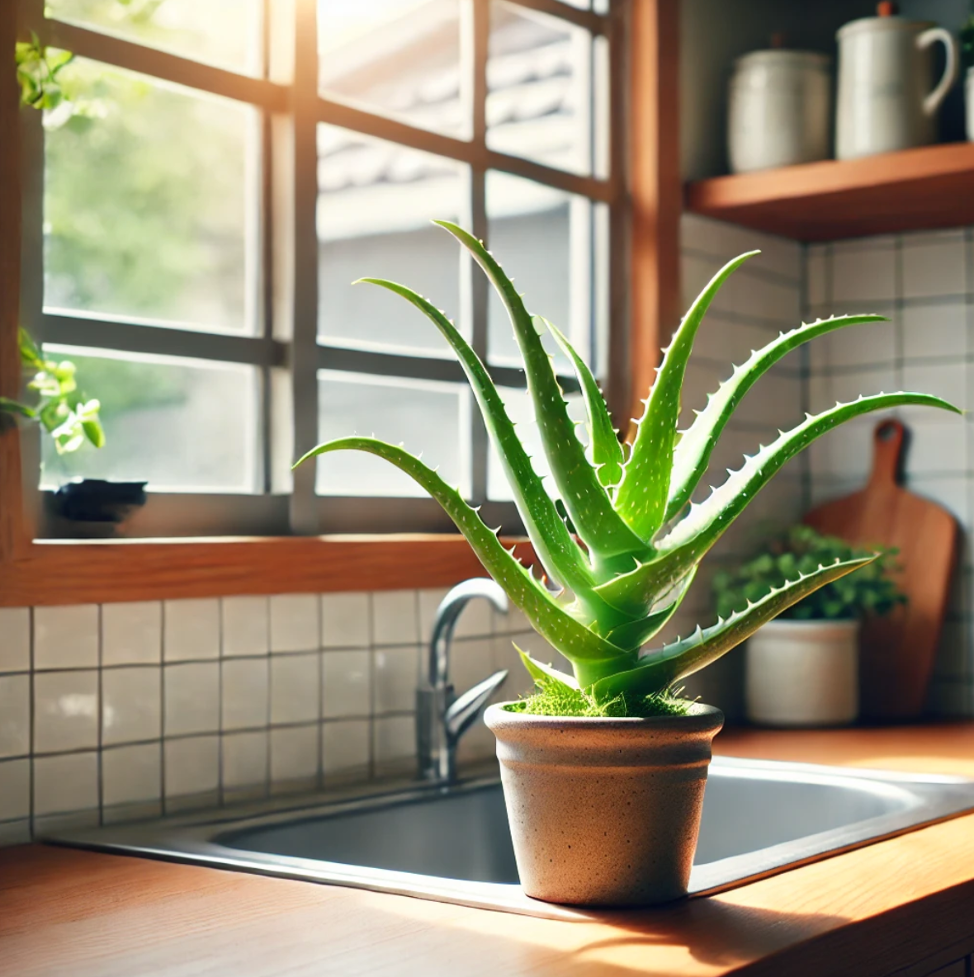
Aloe vera is not only a decorative plant but also has medicinal properties. It’s known for its soothing gel, which can be used to treat minor burns and skin irritations.
- Wellness Benefit: Aloe vera has air-purifying properties and offers medicinal benefits, providing natural remedies for skincare.
- Care Tips: Aloe thrives in bright, indirect sunlight and requires watering only when the soil is completely dry.
How Indoor Plants Improve Wellness
Mental Health Benefits: Having indoor plants can greatly reduce stress and anxiety. Caring for plants encourages mindfulness, as you focus on nurturing another living thing. This process helps you feel more connected to nature, which is especially important during colder months when outdoor access is limited. The presence of greenery indoors promotes relaxation, combats feelings of isolation, and fosters a sense of well-being.
Air Purification: Certain indoor plants, such as snake plants, peace lilies, and spider plants, are natural air purifiers. They help remove common pollutants found in homes, such as formaldehyde, benzene, and carbon monoxide. By absorbing these toxins, plants enhance the quality of indoor air, creating a healthier environment for you and your family.
Boosting Productivity: Introducing greenery into your workspace can improve focus, concentration, and productivity. Studies have shown that working near plants enhances cognitive function, improves mood, and even increases creativity. This makes plants a perfect addition to home offices, where they can make it easier to stay on task and reduce mental fatigue.
Creating a Calming Environment: Plants like lavender, jasmine, and chamomile are known for their soothing properties. Their natural fragrances can help calm the mind, reduce stress, and even improve sleep quality. Adding these aromatic plants to your living space can create a serene atmosphere, making it easier to unwind after a long day and improve overall sleep hygiene.
By incorporating indoor plants into your home, you not only improve the aesthetic of your space but also create a healthier, more balanced environment that supports both physical and mental well-being.
Tips for Thriving Indoor Plants in Winter
Winter can be tough on indoor plants due to lower light levels, dry air, and fluctuating temperatures. To ensure your plants thrive during the colder months:
- Adjust Lighting: Move plants closer to windows or supplement natural light with grow lights.
- Increase Humidity: Use a humidifier or mist plants regularly, especially those that thrive in humid conditions like peace lilies and monsteras.
- Reduce Watering: Most indoor plants require less water in the winter. Check the soil before watering and allow it to dry out between waterings.
- Monitor Temperature: Keep plants away from cold drafts and ensure room temperatures stay between 60°F and 75°F (15°C to 24°C).
Conclusion
Incorporating indoor plants into your home not only adds beauty and vibrancy but also provides numerous wellness benefits. From purifying the air to reducing stress and improving mental clarity, houseplants can transform your living environment into a healthier, more peaceful space. With the right care, even during the challenging winter months, your indoor garden can thrive and continue to support your well-being.

